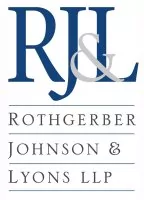It's a regular Old West showdown: at one end of the dusty road are congressional Democrats with their Employee Free Choice Act; at the other end are congressional Republicans with their Secret Ballot Protection Act. Partisan politics has set the stage for a battle that may end in an amendment to those provisions of the National Labor Relations Act (NLRA) that govern union organizing. The result will likely have significant implications for nonunion companies.
At issue are the methods available to unions for organizing nonunion companies. Currently, a union seeking to organize a nonunion company's workers has a couple of options: it can file a petition with the National Labor Relations Board (NLRB) for a secret-ballot election in which employees vote on whether they want to be represented by the union, or it can ask an employer to voluntarily recognize the union as the collective bargaining representative of its employees, thereby avoiding a secret-ballot election with the NLRB. A union can request voluntary recognition only after achieving "majority status"-meaning it must receive authority from a majority of the employees it seeks to organize that it may serve as their collective bargaining representative. This is usually accomplished by a union obtaining a majority of employees' signatures on union authorization cards.
The Employee Free Choice Act, proposed by Democrats, would require the NLRB to certify a union as the collective bargaining representative for a unit of employees where the union can prove its majority status. This law would prevent employers from insisting on an NLRB secret-ballot election in those instances where the union is able to establish its majority status through a "card check." Proponents of the bill argue that the Employee Free Choice Act will:
- Allow employees to freely choose whether to form unions by signing cards authorizing union representation;
- Protect workers from intimidation, harassment, and retaliation by employers to block employees' free choice to organize;
- Provide mediation and arbitration for first contract disputes; and
- Establish stronger penalties for violation of employee rights when workers seek to form a union and during first contract negotiations.
By contrast, the Secret Ballot Protection Act proposed by Republicans would amend the NLRA by requiring secret-ballot elections conducted by the NLRB in all instances. In other words, employers would be prohibited from voluntarily recognizing a union. Proponents of this bill argue that the Secret Ballot Protection Act will:
- Preserve the sanctity of worker free choice and the right to a secret-ballot election;
- Protect workers from intimidation, threats, misinformation, and coercion by a union or coworkers to sign union authorization cards; and
- Eliminate a union's ability to pressure an employer into voluntary recognition.
Ironically, both bills purport to have employee free choice and the protection of employees from intimidation, threats, harassment, coercion, and retaliation as their focus.
Practical Significance
For now, the Employee Free Choice Act will likely not get very far given the Republican majority in Congress. While the Secret Ballot Protection Act has better odds, some authors speculate that a change in the current law is most likely to occur as more Bush appointees join the NLRB, with the NLRB then placing new limits on the use of authorization cards. Nonunion companies should understand their current legal obligations when it comes to union-organizing campaigns. For the moment, an employer can always insist on a secret-ballot election conducted by the NLRB when a union requests voluntary recognition from an employer. Companies or their legal counsel, however, should watch the legal landscape closely with regard to the Employee Free Choice and Secret Ballot Protection Acts. Passage of one of these bills, or any changes in the law similar to these proposals, may significantly affect an employer's obligations during a union-organizing effort.
S. Kato Crews's practice focuses on litigation and traditional labor and employment law matters. He joined RJ&L in 2001 after serving as an attorney with the U.S. National Labor Relations Board, Region 27, in Denver. Mr. Crews advises and represents employers in all aspects of the employment relationship.
The content of this article is intended to provide a general guide to the subject matter. Specialist advice should be sought about your specific circumstances.

